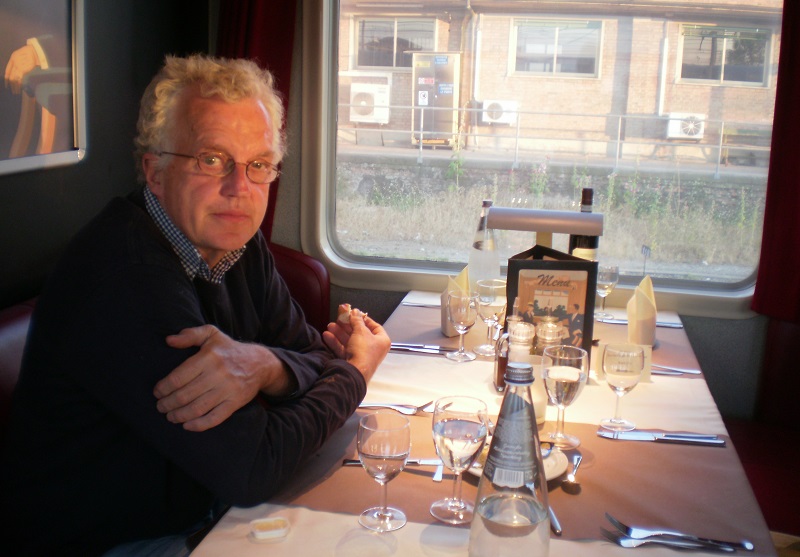The only strange aspect of the growing controversy over HS2 is that it has taken so long to come to the boil. The scheme is suffering from the way it was conceived. In reality the debate that is happening now should have taken place four years ago when Lord Adonis commissioned HS2 Ltd to produce a report into the idea. That was the key error. It looked as if the plan had already been given the go ahead and that HS2 Ltd was simply rubber stamping a ministerial decision.
That report, High Speed Rail, published in March 2010, was designed to ‘establish the options’ for a new high speed rail network in Britain and to produce a ‘costed and deliverable proposal’ for a new line from London to Birmingham. That was rather like Mo Farrah starting a 10k race at the halfway point.
The study should, first, have looked at whether there was a genuine demand for such a line and, if so, whether London – Birmingham was the right route. Moreover, while the report claimed to have considered various options, it gave scant evidence of this. There was clearly a rush to drive through a particular project, irrespective of wider considerations.
Nevertheless, as soon as the report was published, it lost one of its key justifications. The environmental case collapsed when the report found that, broadly, the scheme would be carbon neutral. In other words, after spending all these billions of pounds (believed to be £30bn at the time but now heading north towards £50bn), there was no overall environmental benefit.
In Parliamentary language, High Speed Rail was a White Paper, suggesting immediate action, rather than a Green Paper, involving genuine consultation. And that may prove the scheme’s undoing.
Scepticism about the project has been rising among a public hit by austerity and public sector cuts faster than skyscrapers in Shanghai. This has been compounded by the collapse of the business case, based on time savings, which has gone from a benefit cost ratio of over 2 to less than 1.5 – and is now being recalculated.
Now that the all-party consensus seems belatedly to be cracking, after Ed Balls’s intervention at the Labour Party conference, the government had to act. Frankly, there are divisions within all the parties about the project. Labour’s have been the most public lately, but many Tories, too, are privately hostile to the plan.
Therefore there is an element of desperation in Coalition circles. The government, realising that the case for HS2 has not been made and that the process has been allowed to drift while criticism has mounted, has decided that a change of personnel at the top was essential. So out goes the chairman, Doug Oakervee, a veteran engineer but who was not able to make the case for the line publicly, and his much criticised communications boss, Clinton Leekes who are being replaced by David Higgins, who previously headed the Olympic Delivery Authority and latterly Network Rail, and Ben Ruse, who formerly worked for High Speed One.
This is a last throw of the dice. There is no doubt that the project is in trouble, but perhaps not as much as the opponents would help. Certainly it is too early to write off. An awful lot of political energy has been invested in the project and it will not be easy for politicians to retreat without putting forward some viable alternative. And there are many who hope that this will be money for roads, as indeed Balls suggested.
Indeed, many opponents of the scheme argue that the money would be best spent elsewhere, whether it be transport or other government spending areas, though there’s probably not many who would go for the idea that it could pay for Trident. While there are some transport experts, notably Stephen Glaister, the director of the RAC Foundation who argue strongly that HS2 money would be better spent on roads, this would immediately attract criticism from the environmentalist lobby which, while not convinced of the value of HS2, are adamantly opposed to more roads being built.
In fact, the Treasury does not really work like that. If HS2 were scrapped, the allotted money would simply disappear into the overall state finances and only if there was a clear quid pro quo announced in tandem with the closure would there be any new money for other schemes such as roadbuilding. Indeed, the supporters of the scheme use this argument but somewhat miss the point. If HS2 goes ahead, there is no doubt that other parts of the rail network will have less money available to them, as indeed has happened in France where the TGV absorbs most of the available funding.
There is all to play for. There is now considerable pressure on HS2 Ltd, with its new chairman, to hit back at the critics and make a convincing case for HS2. If David Higgins, with his track record cannot do it, then no one can.
